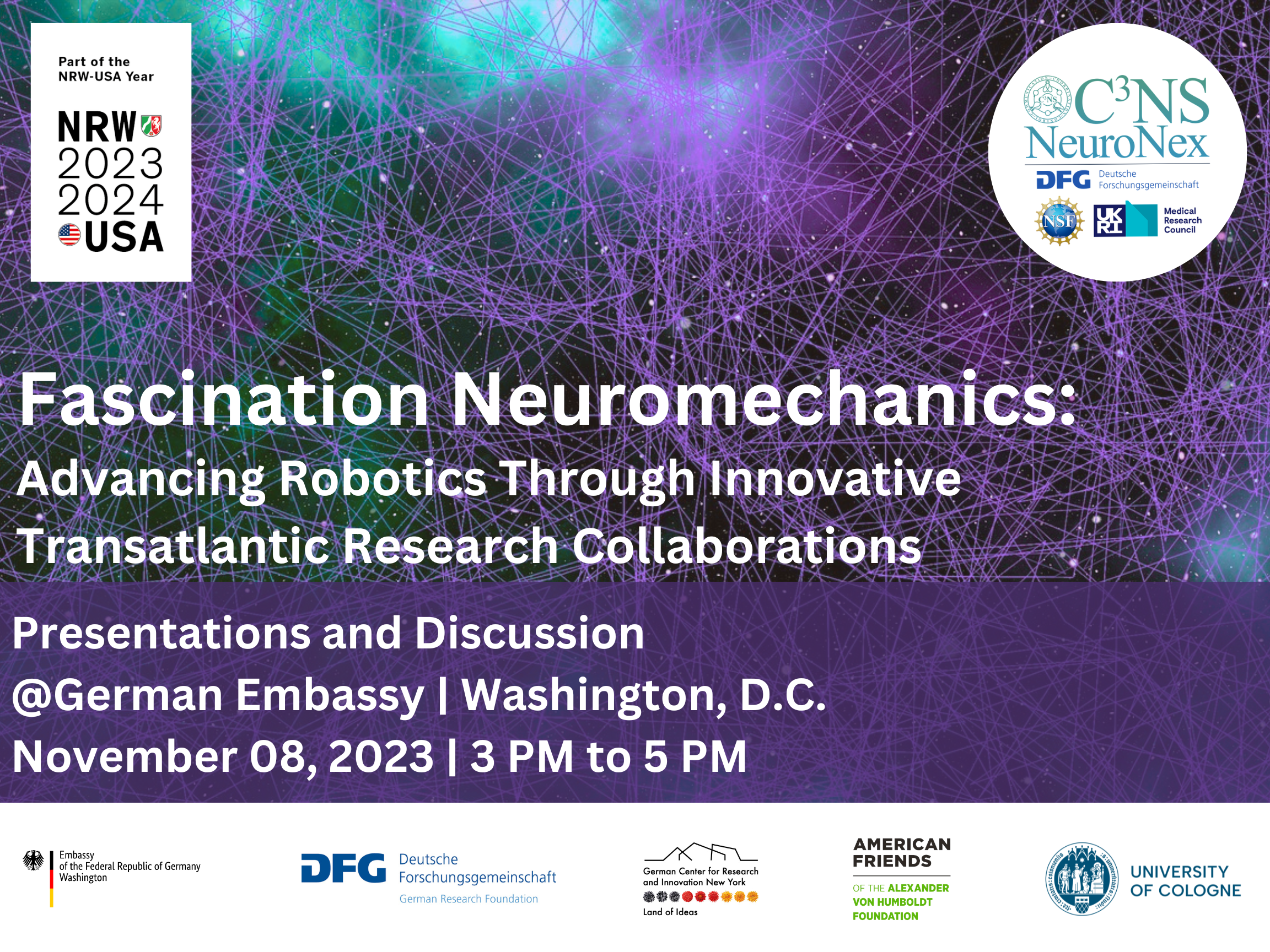Event Info
University of Cologne New York Office, Embassy of the Federal Republic of Germany Washington, D.C., German Research Foundation (DFG) North America, American Friends of the Alexander von Humboldt Foundation, German Center for Research and Innovation (DWIH) New York
discussion
On site
Date and TimeMi 08.11.2023
15:00 - 17:00 o'clockEvent City
German Embassy, 4645 Reservoir Road NW, Washington DC Website
Fascination Neuromechanics: Advancing Robotics
How can innovative transatlantic funding mechanisms benefit science beyond its national scope? Part of National Science Foundation’s (NSF) project Novel Networks for Neuroscience – NeuroNex, the Communication, Coordination and Control in Neuromechanical Systems (C3NS) network brings together modelers, engineers, and experimentalists from Germany, UK, and North America with the goal of addressing the foundational question how biological nervous systems control and execute interactions with the environment.
C3NS is co-funded by the NSF together with the German Research Foundation (DFG), as well as Canadian and UK partner organizations. It is one of only a few projects where multi-national agencies fund large-scale international research projects together despite structural differences. This exceptional collaborative project will be showcased in presentations by experts from Germany and the U.S. in the areas of neuroscience, robotics, and control, followed by a discussion with representatives from the research funding, diplomatic, and scientific communities in Washington, D.C. and beyond as well as other interested stakeholders.
With the participants the speakers will dive into the fascinating world of neuromechanics. Animals are remarkably effective in getting around in the world – flexible, adaptable, and resilient. Whether one is swatting away fruit flies, admiring a squirrel scrambling up the trunk of a tree, or trying to chase cockroaches out of an apartment, the agility and speed with which animals can respond to avoid danger and achieve their goals is impressive. Understanding how the body and brain work together to create such adaptive behavior could create new technical solutions including novel, autonomous robots. Such innovations, enhanced through new perspectives and approaches thanks to uniquely funded close transatlantic collaborations, can also contribute to increasing our society’s resilience when dealing with global challenges.





